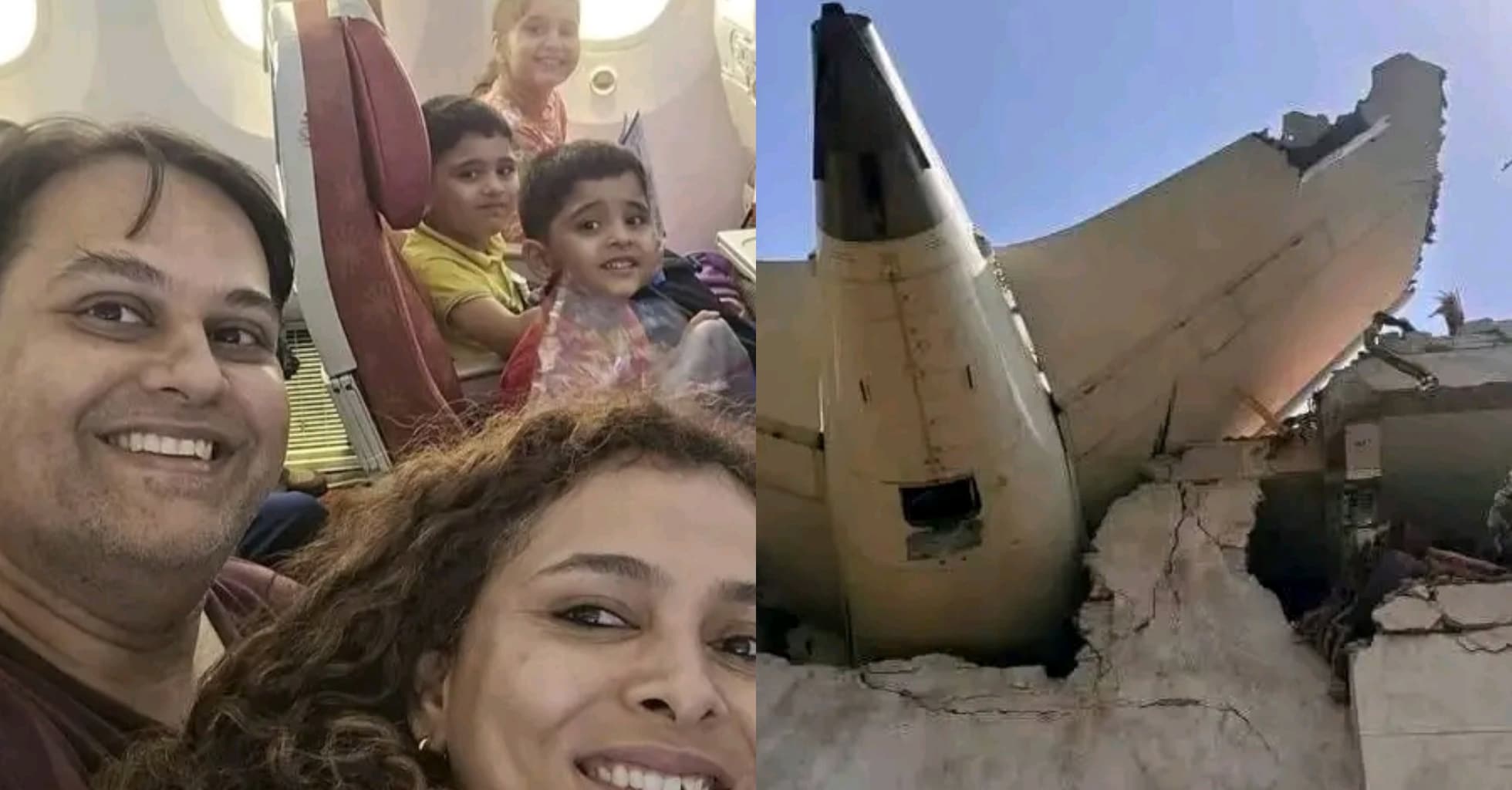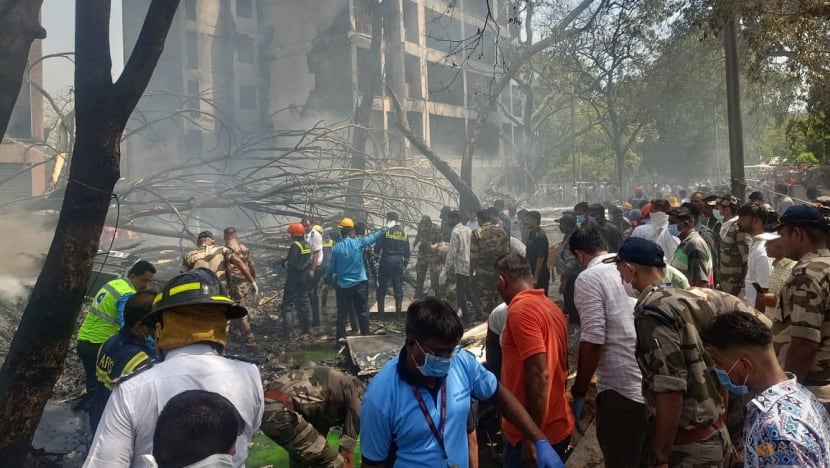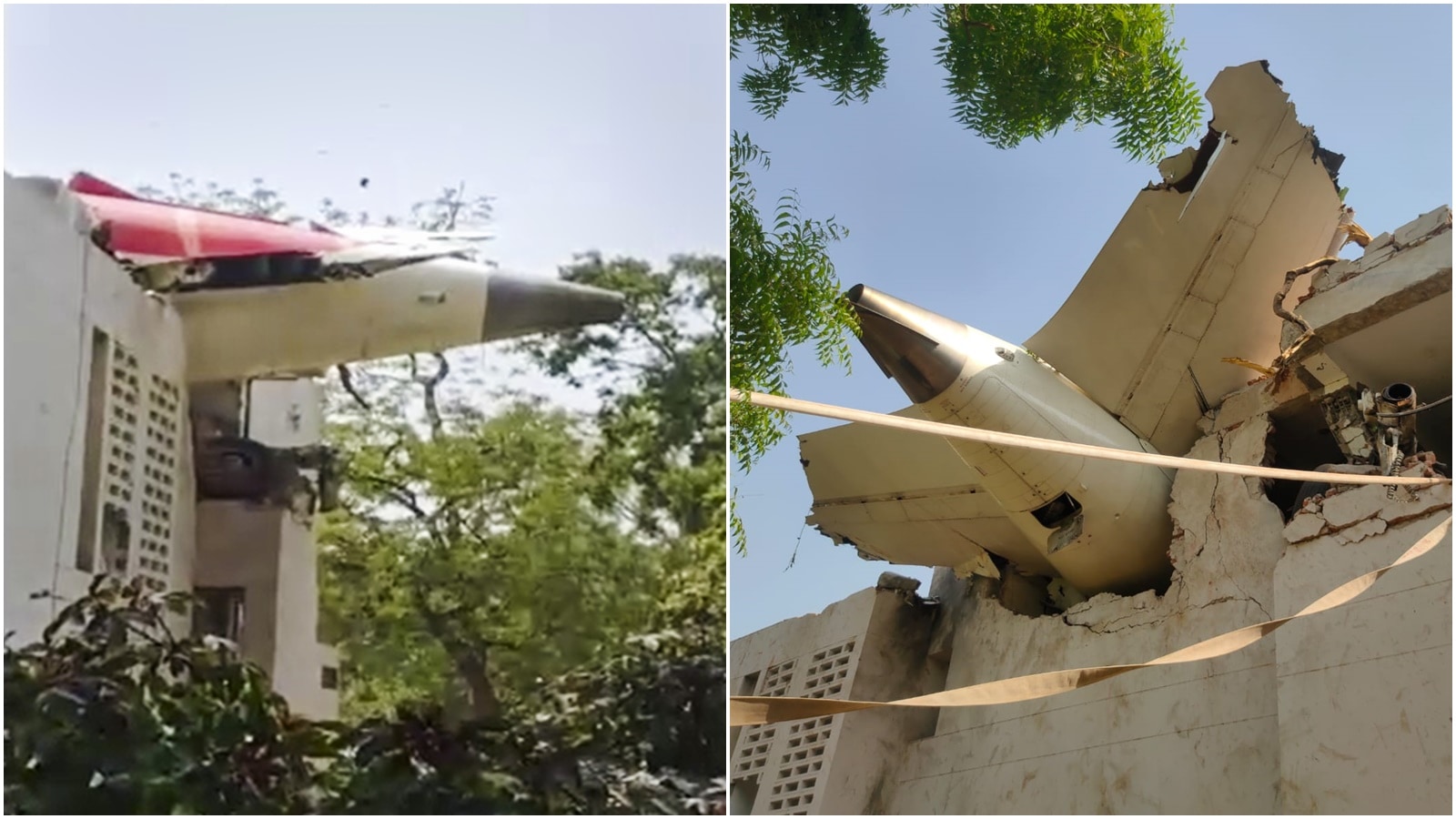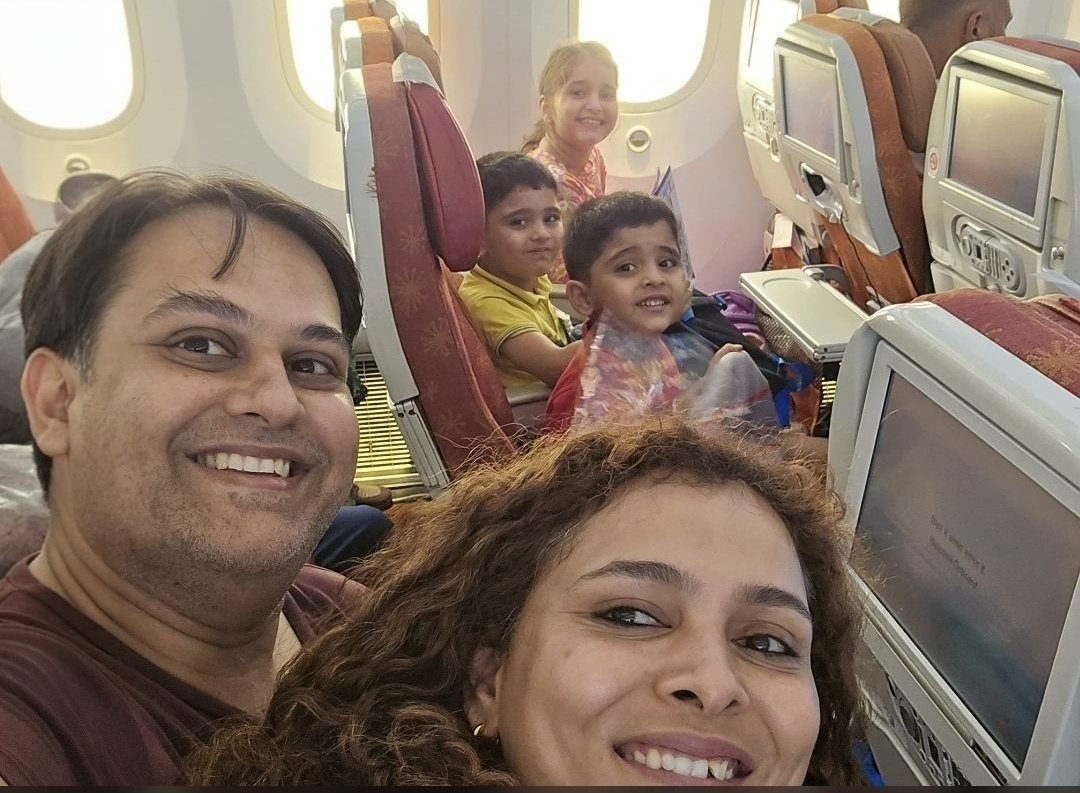A devastating aviation disaster on June 12, 2025, ended the hopes and dreams of 241 passengers and crew aboard Air India Flight AI171. Among them was the Joshi family from Udaipur, India, who were on their way to start a new chapter of life in the United Kingdom. Tragically, their journey ended in disaster shortly after takeoff from Ahmedabad’s Sardar Vallabhbhai Patel International Airport.

The Joshi Family: A Story of Aspiration and Sacrifice
Pratik Joshi, a software engineer who had lived in London for six years, had been preparing for the long-anticipated reunion with his family. His wife, Dr. Komi Vyas, was a respected medical professional in Udaipur. According to reports from The Hindu and The Times of India, she had resigned from her position and completed preparations for the family’s move to the UK with their three young children.
On the afternoon of June 12, the family boarded Air India Flight AI171 filled with hope and excitement. A photo taken at the airport moments before departure captured their joy and was shared with relatives—a final memento before tragedy struck.

The Crash: What Official Reports Confirm
Air India confirmed in a public statement that Flight AI171, operated by a Boeing 787-8 Dreamliner, took off at 13:38 IST en route to London Gatwick Airport. Within minutes of takeoff, the aircraft encountered a critical malfunction that led to a crash in a residential area near Ahmedabad.
The Directorate General of Civil Aviation (DGCA) of India, which oversees civil aviation safety, promptly launched an investigation alongside the Aircraft Accident Investigation Bureau (AAIB). Flight data recorders (FDR) and cockpit voice recorders (CVR) were recovered and sent for analysis, according to an official release on June 13, 2025.
Preliminary investigations have focused on technical anomalies during ascent, but full details will be available following the completion of the analysis. The probe is being conducted in accordance with Annex 13 of the International Civil Aviation Organization (ICAO), which outlines international protocols for accident investigation.

Casualty Figures and Nationalities
Air India released detailed information regarding the occupants of the ill-fated flight. There were 242 people on board, including:
-
169 Indian nationals
-
53 British nationals
-
7 Portuguese nationals
-
1 Canadian national
-
12 crew members
Only one passenger, an Indian national, was found alive with critical injuries and was immediately transported to the Civil Hospital in Ahmedabad for emergency treatment. The identities of the deceased have been confirmed and communicated to the respective embassies and families.

National and International Response
India’s Prime Minister Narendra Modi issued a public statement expressing deep sorrow over the incident and extended condolences to the families affected. He directed government agencies to provide all necessary assistance, both logistical and psychological, to the victims’ families.
The UK Foreign, Commonwealth & Development Office also acknowledged the incident and confirmed that consular support is being extended to British nationals and their families affected by the tragedy.
Meanwhile, Boeing has pledged full cooperation with Indian authorities and international aviation experts to assist in determining the cause of the crash. ICAO representatives are also closely monitoring the developments.

The Human Impact: A Family’s Lost Dream
The story of the Joshi family has resonated across India and the Indian diaspora in the UK. Pratik Joshi was part of a growing wave of Indian professionals who had secured employment and residency in the UK under skilled migration programs. His wife, Dr. Vyas, planned to continue her career in the healthcare sector upon arriving in London.
According to the UK Office for National Statistics (ONS), Indian nationals comprise one of the largest non-EU skilled worker groups contributing to key sectors like information technology and healthcare in the United Kingdom. Families like the Joshis represent not just migration statistics but the human stories of hope, opportunity, and resilience.
This tragic incident is a stark reminder of how quickly lives can change and the importance of ensuring the highest safety standards in global aviation.

Support for Victims’ Families
Air India has activated an emergency response team and set up helplines for the families of those on board. In addition to immediate logistical and psychological support, the airline has committed to compensation in line with the Montreal Convention, which governs air travel liability.
The Indian Ministry of Civil Aviation is also working with state governments and embassies of foreign nationals involved in the crash to provide coordinated support, including the facilitation of repatriation processes and funeral arrangements.
Humanitarian organizations, such as the Indian Red Cross Society, have stepped in to offer counseling and grief support services to affected families. An emergency relief fund is being explored by state and central government authorities to assist those impacted by the crash.

The Broader Implications
While aviation accidents remain statistically rare, this incident calls attention to the critical importance of continuous aircraft maintenance, pilot training, and early warning systems. The International Air Transport Association (IATA) reports that global aviation safety has steadily improved over the past decade, but tragedies like Flight AI171 serve as reminders of the vigilance required across the entire industry.
Calls for transparent investigations, infrastructure upgrades at Indian airports, and enhanced airline communication protocols have intensified following the accident.

Conclusion
The crash of Air India Flight AI171 is one of the most tragic aviation incidents in recent Indian history. Families like the Joshis, who embarked on their journey filled with dreams of a brighter future, now serve as symbols of the lives forever changed by the disaster.
As investigations continue, the focus remains on providing support to grieving families, understanding the causes of the crash, and ensuring that future generations of travelers are protected through rigorous safety improvements and international collaboration.
Sources:
-
Directorate General of Civil Aviation (DGCA): www.dgca.gov.in
-
Air India Official Statement: www.airindia.com
-
The Times of India: timesofindia.indiatimes.com
-
The Hindu: www.thehindu.com
-
International Civil Aviation Organization (ICAO): www.icao.int
-
UK Office for National Statistics (ONS): www.ons.gov.uk
-
International Air Transport Association (IATA): www.iata.org
